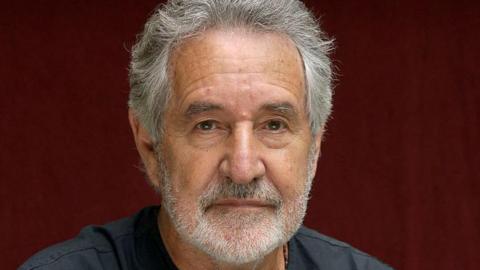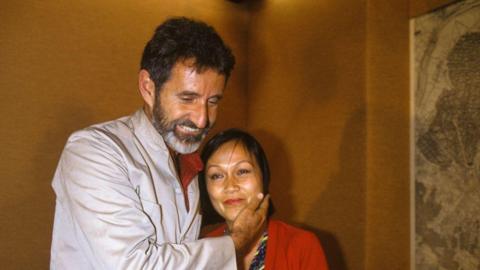In 1975, at the height of his literary fame, he made a clandestine return to South Africa, where he was arrested for attempting to aid resistance groups in the country.
He was sentenced to seven years in prison for terrorism, but continued to write poetry while he was jailed.
The then French President, François Mitterrand, helped secure his release in 1982 and he became a French citizen.
The years of imprisonment resulted in one of his most impactful works, his novel The True Confessions of an Albino Terrorist - a harrowing account of his seven-year prison sentence, two of which he spent in solitary confinement.
After apartheid ended, he became a vocal critic of the liberation government of Nelson Mandela. He felt the African National Congress (ANC) had turned into a “corrupt organisation”.
The poet didn't only use his pen to fight those injustices in South Africa, but also around the world.
In 2002, he wrote an open letter in The Guardian to the then Prime Minister of Israel, Ariel Sharon.
"Why should we look the other way when it is Israel committing crimes? A viable state cannot be built on the expulsion of another people who have as much claim to that territory as you have," he wrote about the ongoing conflict between Israel and the Palestinians.
Breytenbach published over 50 books during his lifetime, and some have been translated into multiple languages.
He is also known for his surreal paintings, which often depict humans and animals in captivity.
He was later made a Knight of the Order of Arts and Letters, France's top cultural award.

